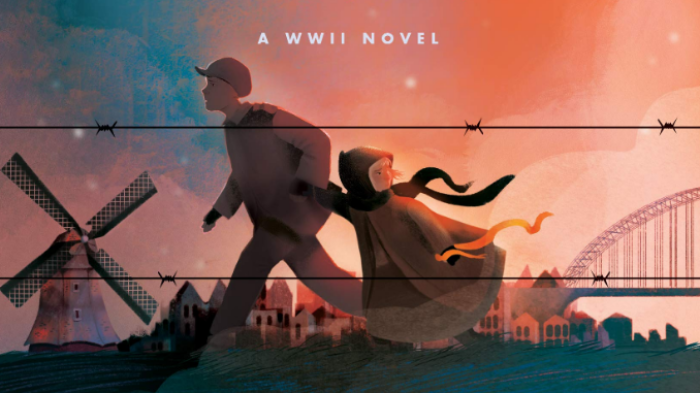Christian psychologist brings hope to kids amid COVID-19 with WWII novel

Rob Currie, a psychologist-turned-children’s author, believes that in a culture defined by fear and anxiety, kids need to learn from history that it’s possible to survive even the most devastating of circumstances with God’s help.
In an interview with The Christian Post, Currie revealed that his newly-released historical fiction book Hunger Winter: A World War II Novel draws from the horrific events of WWII to drive home lessons relevant for today.
“There are some similarities between the pandemic and WWII: Both events are unusual in the scope of both a worldwide phenomenon that affects a lot of people and international relations and so on,” he said. “I think this is a good time for a book like this because it illustrates in story form that people can make it through hard times, particularly with God's help.”
Intended for 4th to 8th-grade children, Hunger Winter follows the story of 13-year-old Dirk. His father leaves to fight with the Dutch Resistance and then his mother dies. When the Nazis ambush Dirk’s older sister, the young boy realizes they will come for him next. He leaves home in the middle of the night to trek across the warn-torn Netherlands with his pockets stuffed with food, his little sister Anna asleep in his arms, and his heart heavy with a dark secret.
Though a children's novel, the book examines hard-hitting questions. In one scene, Dirk asks his father, "How can you still believe in God when so many bad things have happened?"
For children, the message of hope amid scary circumstances is timely: In one study out of China, researchers in Hubei province, where the COVID-19 pandemic originated, examined a sample group of 2,330 schoolchildren for signs of emotional distress. After one month, 22.6% of them reported depressive symptoms and 18.9% were experiencing anxiety.
Though the subject material isn’t exactly lighthearted, Currie said parents have told him their children are “eating up” his book — highlighting the relevance of its message.
“Kids love stories where there's an element of danger,” he said. “You want a winning formula for fiction, put a likable person in a tough spot, and then leave them there for a while, and then let them get out of it by their own wit and grit and skill.”
The name of the book, Currie said, comes from the final winter of WWII, 1944-45, when the Nazis cut off food and fuel in efforts to crush the Dutch resistance. As a result, 20,000 civilians starved or froze to death, leading the Dutch to call it the “Hunger Winter.”
Initially written as a gift to his son, Hunger Winter is full of important lessons for children, Currie said, including the counter-cultural message that we are capable of greater evil than we know.
“Most of us think of ourselves as the ‘good people’ and other people as the ‘bad people,’” the author said. “I do think America has an awful lot on the side of right compared to Nazi Germany and Imperial Japan, but one of the lessons from World War Two is that there was a lot of bad stuff going on all over.”
For example, during WWII, Americans put innocent Japanese Americans in internment camps and failed to treat African-American soldiers “like humans.” Currie said. “It was wrong of us. It feels really good to be the good guy and bask in righteous indignation, but the Bible and history agree there is bad in all of us.”
‘We need to humble adopt the attitude of ‘‘there but for the grace of God, go I’ to show empathy and compassion to others,” Currie said.
A Christian psychologist by profession, Currie pointed out that many Americans — perhaps unwittingly — live by the "just-world" phenomenon, believing that because bad things happen to someone, they did something to deserve the bad things.
“We think if someone gets really sick or injured or loses their job or experiences some tragedy, it was probably their fault,” he explained. “They should have chosen a different career or they shouldn’t have married that person. If we see our own shortcomings, it brings us down to the level of the hurting person and we see them as someone needing a helping hand.”
In publishing his book, Currie told CP his goal was twofold: To spark an interest in reading and put out the Gospel message in story-form.
“I thought it would be helpful if I wrote a book that would just really grab kids’ attention and it seems to be doing that,” he said. “I've heard from adults too. One man who was in his mid-50s said this is the first book he's read all the way through since he graduated from college.”
Half of the proceeds of the book go to Compassion International, a faith-based organization that aims to positively impact the long-term development of children living in poverty globally.
“The book doesn’t preach at you but the Gospel is all throughout the dialogue,” he said. “I wanted to give some faith content to Christian kids, but I'm marketing this to public schools too. I want kids who will never go to church to read a story because it's interesting to them and get some Gospel truths placed in their hearts.”





























